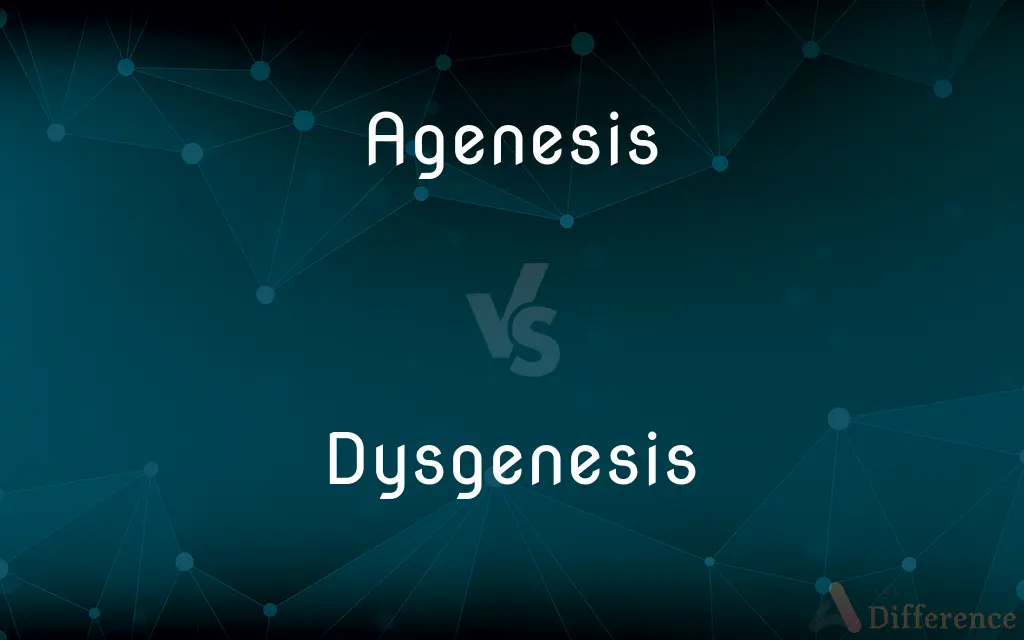Agenesis vs. Dysgenesis — What's the Difference?

Difference Between Agenesis and Dysgenesis
ADVERTISEMENT
Compare with Definitions
Agenesis
In medicine, agenesis () refers to the failure of an organ to develop during embryonic growth and development due to the absence of primordial tissue. Many forms of agenesis are referred to by individual names, depending on the organ affected: Agenesis of the corpus callosum - failure of the Corpus callosum to develop Renal agenesis - failure of one or both of the kidneys to develop Amelia - failure of the arms or legs to develop Penile agenesis - failure of penis to develop Müllerian agenesis - failure of the uterus and part of the vagina to develop Agenesis of the gallbladder - failure of the Gallbladder to develop.
Dysgenesis
Defective or abnormal development of an organ, especially of the gonads.
Agenesis
Absence or incomplete development of an organ or body part.
Dysgenesis
(medicine) Defective development
Agenesis
(pathology) Any imperfect development of the body, or any anomaly of organization
ADVERTISEMENT
Dysgenesis
A condition of not generating or breeding freely; infertility; a form of homogenesis in which the hybrids are sterile among themselves, but are fertile with members of either parent race.
Agenesis
Any imperfect development of the body, or any anomaly of organization.
Dysgenesis
Infertility between hybrids
Agenesis
Imperfect development; nondevelopment of a part
Share Your Discovery

Previous Comparison
Mortgage vs. Note
Next Comparison
Realistic vs. Achievable













































